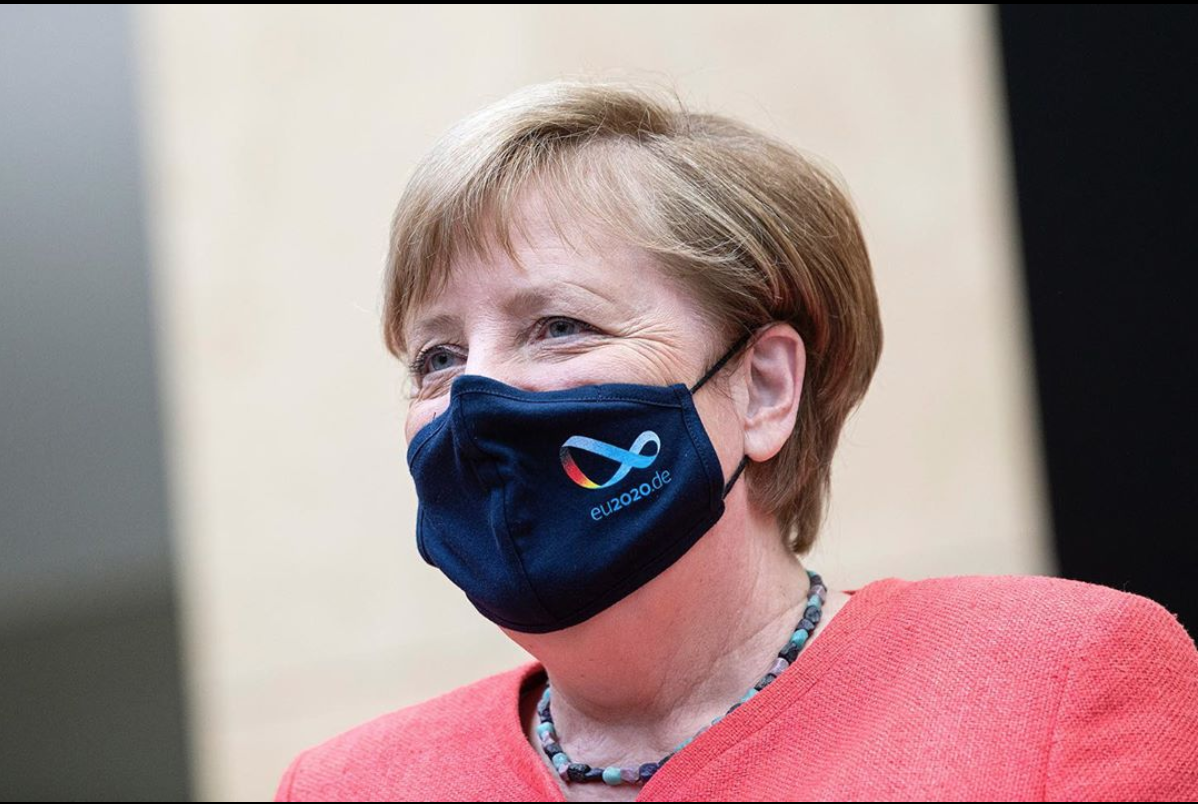Merkel will not make Trump mad about Huawei in 5G

The draft of the new German cybersecurity law contains a double check – technical and political – on the reliability of manufacturers that would cut Huawei's legs in 5G, according to analysts heard by the business newspaper Handelsblatt
The German way to disengage from Huawei's embrace looks a bit like the Italian one : not a ban on the Chinese giant in the construction of the 5G infrastructure, but criteria so strict as to "enormously limit" the use of components of the Chinese giant. The indiscretions revealed a week ago by the daily Die Welt are today confirmed by the economic one H andelsblatt , and the draft of the new law on cyber security, revised and refined in recent days by the ministry technicians in view of the confrontation in the government in November, contains that call for a double check – technical and political – on the reliability of the manufacturer that would cut Huawei's legs.
According to reports from the Handelsblatt , the two-level process envisages on the one hand the technical examination of the individual components, on the other a political evaluation of the credibility of the manufacturer: "Berlin wants to avoid that the new mobile network is used for operations of sabotage ". The ploy would allow Berlin to ease tension with the US and avoid formally closing the door to the Chinese by placing a screen justified by national security needs in front of them.
The critical components will in fact have to obtain a certification from the Federal Office for the security of information technology, writes the Handelsblatt . In parallel, the government will ask for a declaration of assurance from the manufacturer, which will be verified through information from the security services from three ministries, Interior, Foreign and Economic, and probably from the chancellery itself. Only if the product gets the green disc in all these steps, it would be possible to use it. A practically impossible condition, experts believe. The financial newspaper gave the floor to Martin Schallbruch, IT expert at the European School of Management and Technology (ESMT) in Berlin: “In fact, this procedure constitutes the exclusion of Huawei. The whole process becomes so long and laborious that network operators will only be able to obtain investment security from other suppliers ”.
The debate on Huawei's role in the implementation of 5G in Germany and the very strong pressures put in place by the US administration are naturally inseparable from the issue of state surveillance in China. The distrust of many Western countries and security services is linked to the fact that organs of the Chinese state, including the services, can force citizens and businesses to share sensitive information. Provisions to this effect can be found in the National Security Law issued by Beijing in 2017, which provides for the general obligation of citizens and organizations to provide support and assistance to military public security authorities and intelligence agencies.
In an internal report carried out at the beginning of 2020, the German Foreign Ministry itself had emphasized that, in reference to the construction of the 5G network, the reliability of Chinese companies on security issues was nil. The conclusion was also reached by the German security service Bnd, for which "the German infrastructure is not suitable for a company in which it is not possible to completely trust". The risk that the 5G network could be used externally for sabotage actions against German infrastructures or companies is too high for the Bnd too.
Too many sensitive areas would depend on the functioning of the 5G network and its ability to transport huge amounts of data, from the automatic management of industrial plants to the automatic driving of cars, to the regulation of traffic, just to remain in some of the areas. And it is for this reason, reports the Handelsblatt , that the German government wanted to put the entrepreneurial structure of Huawei under the magnifying glass, even if it should be emphasized that within the same executive different positions and the same position of the Chancellor has changed only in recent times and following strong pressure from the US. The concerns, primarily of Merkel and Economy Minister Peter Altmaier, are linked to equally strong pressure from Beijing: recently, the Chinese ambassador in Berlin threatened retaliation against German auto companies should Huawei be excluded. from the creation of the 5G network. Intimidations to which the German government responded with a mild reaffirmation of the values of the free market and condemnation of protectionism.
In reality, the tables open for Chancellor Merkel are many, and all delicate. The one with the USA also includes the Nord Stream 2 dossier, and it is not excluded that the events somehow intertwine. For Berlin it will also be crucial to understand which US president we will have to deal with in the next 4 years and, although there are not too many illusions about the flexibility of the Democrats, it is no mystery that the chancellery is hoping for a Joe Biden victory.
On the Chinese side, the reactions received by the business newspaper remain marked by great caution. "We do not judge a draft law that is not available to us," said a Huawei spokesman, reiterating the defensive line already announced several times: we are a private company. In the meantime, the Great Game of International Businesses is entangled around German 5G. And the Handelsblatt concludes by underlining how bad news for Huawei becomes good news for Nokia and Ericsson, the two Scandinavian alternative groups that can certainly play the reliability card on security more successfully.
This is a machine translation from Italian language of a post published on Start Magazine at the URL https://www.startmag.it/mondo/merkel-non-fara-imbestialire-trump-su-huawei-nel-5g/ on Wed, 30 Sep 2020 14:00:38 +0000.
